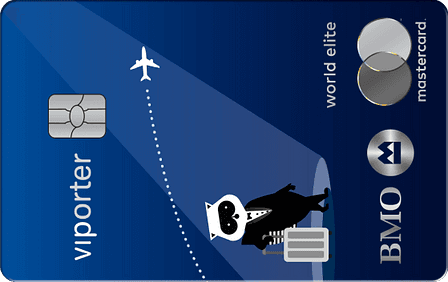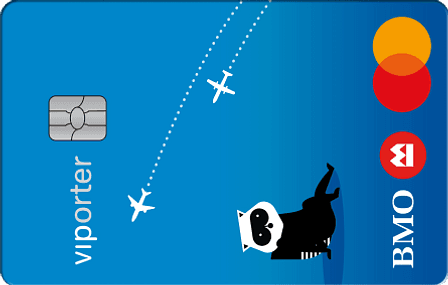
What Does Pending Mean on a Credit Card?
Abid Salahi
Author5 min read
Ever seen those "pending" labels on your credit card transactions and then wondered "what does pending mean on a credit card".
This often indicates of an approved transaction that simply hasn't been "posted" to your account balance, meaning a merchant may be checking to see if you hold enough funds to cover it.
Reason to worry? Well, only if you do not have enough sufficient funds.
Let's see dive deeper into exactly what does pending on a credit card mean and different reasons why it's done this way.
Why Do Transactions Become Pending First?
1. Credit Card Holds
a pending credit card charge is essentially an agreement to transfer money from your account to the business from which you made the purchase. The money won't be taken from your account until the merchant has finished processing it.
When the final transaction value isn't immediately obvious, such as at restaurants, petrol stations or hotels, this would often occur. Since the hold value on your card can differ from the actual transactional value, it can reduce your available credit and make accounting a bit more challenging.
Want to earn $1,000 MORE in credit card rewards?
Grab your free guide to learn how to maximize the credit card rewards you earn
.png&w=3840&q=100)
2. Billing or User Errors
Billing or user errors can also result in pending credit card charges. We're not perfect, and pending transactions can sometimes be the result of human error.
For example, you might change your minds after making a purchase and cancel a transaction. If the authorization already went through, the transaction may remain in pending status.
3. Fraud and Anti-Fraud Authorizations
Pending credit card charges can also happen because of fraud and anti-fraud authorizations. Any unidentified pending transactions could be a sign of fraud, so keep an eye out for them.
Additionally, some businesses add minor outstanding charges to cards to confirm ownership and prevent fraud. These fees are often quite small and usually refunded after the verification procedure is finished.
4. Subscription Renewal Problems
Finally, issues with subscription renewal can occasionally result in pending transactions. If the cardholder didn't know about your subscription or didn't give their authorization, the charge can appear to be pending while the problem is being resolved.
How Long Do Pending Transactions Take?
Depending on the credit card company, the merchant, and the nature of the purchase, it may take three to five business days for them to clear. Although it happens infrequently, pending transactions might occasionally last up to 30 days. Holds on money may occasionally be imposed on travel-related expenses in order to guarantee service payment.
How long you perceive your transaction as pending can also depend on the merchant's processing time. The validity and balance of the customer's card are frequently verified by retailers. This procedure may take two to three days, perhaps even five to seven days.
It's crucial to remember that just because a transaction is pending doesn't mean that money has already been taken out of your account. The transaction is merely an agreement to pay, and the money won't be taken out until the whole thing has been handled.
Because of this, there can be a discrepancy between your account balance and your spendable balance (the amount you have available to spend at any given time). The spendable balance provides a more realistic representation of your available funds because it takes into account all outstanding transactions.
So, What Does Pending Mean on a Credit Card?
If you have enough money to cover the transaction amount, I suggests you don't need to worry. That is, unless there was a problem on the merchant's end or you don't know where the transaction came from.
It's better to wait and see what occurs after a minimum of 3 business days, given that these outstanding transactions can take anywhere from a few days to a month to clear, depending on the conditions.
It's important to realize that while a transaction is pending, the money is essentially set aside, lowering your credit line. However, until the transaction changes from pending to posted status, it is not complete and the money has not yet been properly transferred.
Understanding this procedure will enable you to better control how you use your credit card and steer clear of potential problems like refused purchases or overdraft penalties.
Frequently Asked Questions
1. What does a pending transaction mean on a credit card?
When a credit card transaction is marked as pending, it has been authorized but not yet fully completed. Although they are set aside and subtracted from your available credit, the funds for the transaction are not entirely transmitted until the deal is closed.
2. How long do pending transactions take to clear?
The normal time it takes for pending transactions to clear is three to five business days. However, they could take up to 30 days, depending on the situation. The credit card company, the merchant, and the nature of the transaction all influence the precise period.
3. Can I cancel a pending transaction on my credit card?
Most of the time, you cannot cancel a credit card transaction that has been approved. Before any modifications can be made, the transaction must be completed. You should, however, contact the merchant or your credit card company for support if there is a mistake or problem with the transaction.
4. Do pending transactions affect my available credit?
Yes, pending transactions do lower your credit limit. The money is set aside and taken from your credit line while the transaction is pending. Although, the full transfer of funds doesn't occur until the deal is sealed.
5. Can I pay off a pending transaction on my credit card?
No, you cannot settle a credit card transaction that is still open. Before you may settle the transaction, it must be completed. The money is set aside and taken from your credit line (i.e. reduces credit limit) while the transaction is pending.
Trending Offers

Scotiabank Passport® Visa Infinite* Card

BMO VIPorter World Elite Mastercard®∗

Scotia Momentum® Visa Infinite* Card

BMO VIPorter Mastercard®∗

Scotiabank Value® Visa* Card